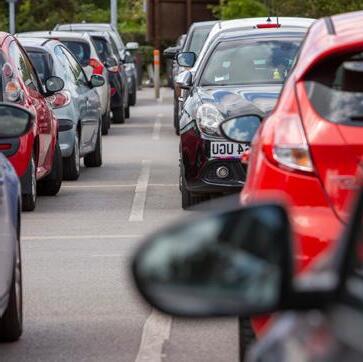
4 minute read
THE DIRTY DOZEN
Cars are the most destructive technology most of us will ever lay our hands on. If you think this doesn’t apply to you because you drive an electric one, then think again. Only 1 of the 12 below does not apply to electric cars.
1 Cars emit gaseous air pollution
Exhaust fumes from non-electric cars contain nitrogen dioxide. This directly causes respiratory problems, resulting in increased hospital visits and pressure on the NHS. It also leads to acid rain which harms delicate ecosystems including forests and lakes. During the covid lockdown, there was widespread reduction in air pollution, when there were far fewer vehicles on the roads. The Fishergate monitoring station in York recorded a reduction of nearly one-third in nitrogen dioxide pollution during that period.
2 Cars generate particulate air pollution
Up to 55% of roadside traffic pollution doesn’t come from fumes, but particles including brake dust and tyre wear; which means that switching to an electric vehicle won’t solve the pollution problem: indeed their extra weight makes them worse offenders. These airborne particles significantly increase the risk of a huge range of diseases including heart disease, asthma and dementia and have recently been demonstrated to be a direct trigger for lung cancer.
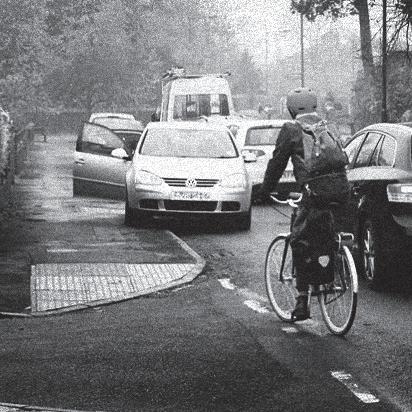
3 Cars cost us all
As noted in nos.4 and 5, driving imposes immense costs on society; estimated at 15p per mile driven (as opposed to cycling’s net benefit of 25p per mile). Just one example: the UK spends £12 billion per annum on road building and maintenance alone. That amounts to £200 per person in the UK, whether or not you drive a car; it’s funded from general taxation, not vehicle (“road”) tax. Yet only half the population has a driving licence! Does that seem fair to you?
4 Cars create traffic congestion
What would you do with 32 hours of free time? Sit in your car going nowhere? Studies show that we spend an annual average of a day and a half stuck in traffic. How about £500 free money? That’s how much congestion costs the average family each year! It amounts to £4.3bn to the national economy. That’s a lot of hospitals! And that’s before we even get to consider their aesthetic and physical impact on our city.
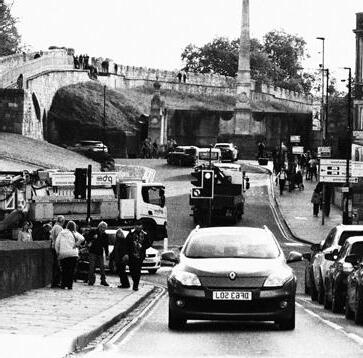
5 Cars make for sedentary lifestyles
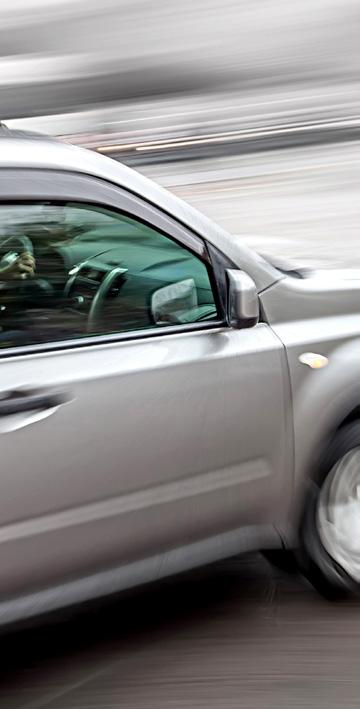
32 hours going nowhere sounds bad. But how about 456 hours behind the wheel doing nothing but sitting? That’s 19 full days, or 60 working days, and it’s how long the average British person spends driving! Sedentary lifestyles are linked with heart disease, diabetes, cancer and dementia, and costs the NHS £800 million annually. What’s more, chauffeuring our children everywhere by car is passing this onto the next generation contributing to an epidemic of childhood obesity. How many of those hours could be spent on active travel instead?
6 Cars kill people daily
Every 22 minutes, someone is killed or seriously injured on Britain’s roads, with road collisions being the leading cause of death for people aged 15-29. Between 2005 and 2018, 548 pedestrians on pavements were killed; an average of around 40 per year. Just six of those deaths were caused by cyclists. Motorists present an exponentially higher danger to pedestrians than any other road users. But this doesn’t make the news or result in harsh penalties. We’ve normalised it to such an extent that we consider these deaths unavoidable collateral damage. Imagine if those people were victims of gun crime?
7 Cars produce carbon
Carbon dioxide – a greenhouse gas and major cause of global heating – is emitted every time we drive our cars: Around one fifth of the UK’s entire annual greenhouse gas emissions comes from road transport. On top of this, a huge amount of carbon dioxide is emitted during the making of a car, accounting for somewhere between a quarter and a half of the carbon emissions produced during a car’s lifetime. Electric cars avoid the tailpipe emissions, but can’t escape the embodied emissions, meaning that the lifetime carbon footprint of an electric car is only around 20% less than the most ecofriendly gas-guzzlers.
8 Cars widen social inequality
Our societies are built around the assumption that everyone can drive – but this leaves out the most disadvantaged groups, including children, elderly people, and people in lowincome areas. Less than half of households in the poorest fifth of the population own a car, and amongst those on Jobseekers’ Allowance, almost two thirds do not have access to a vehicle. The richest 10% of the population benefit from four times the amount of public spending on transport than the poorest 10%.
9 Cars create noise pollution

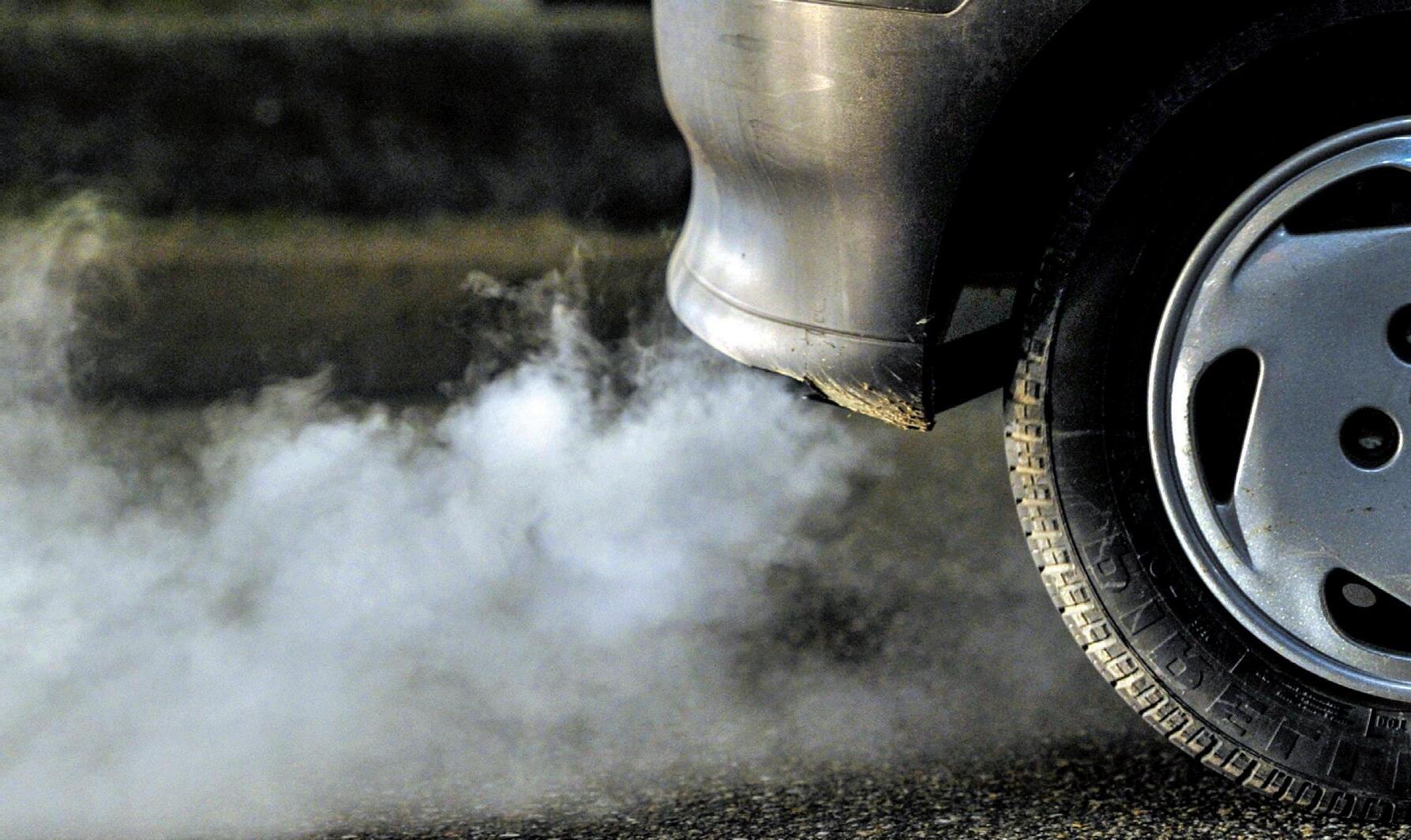
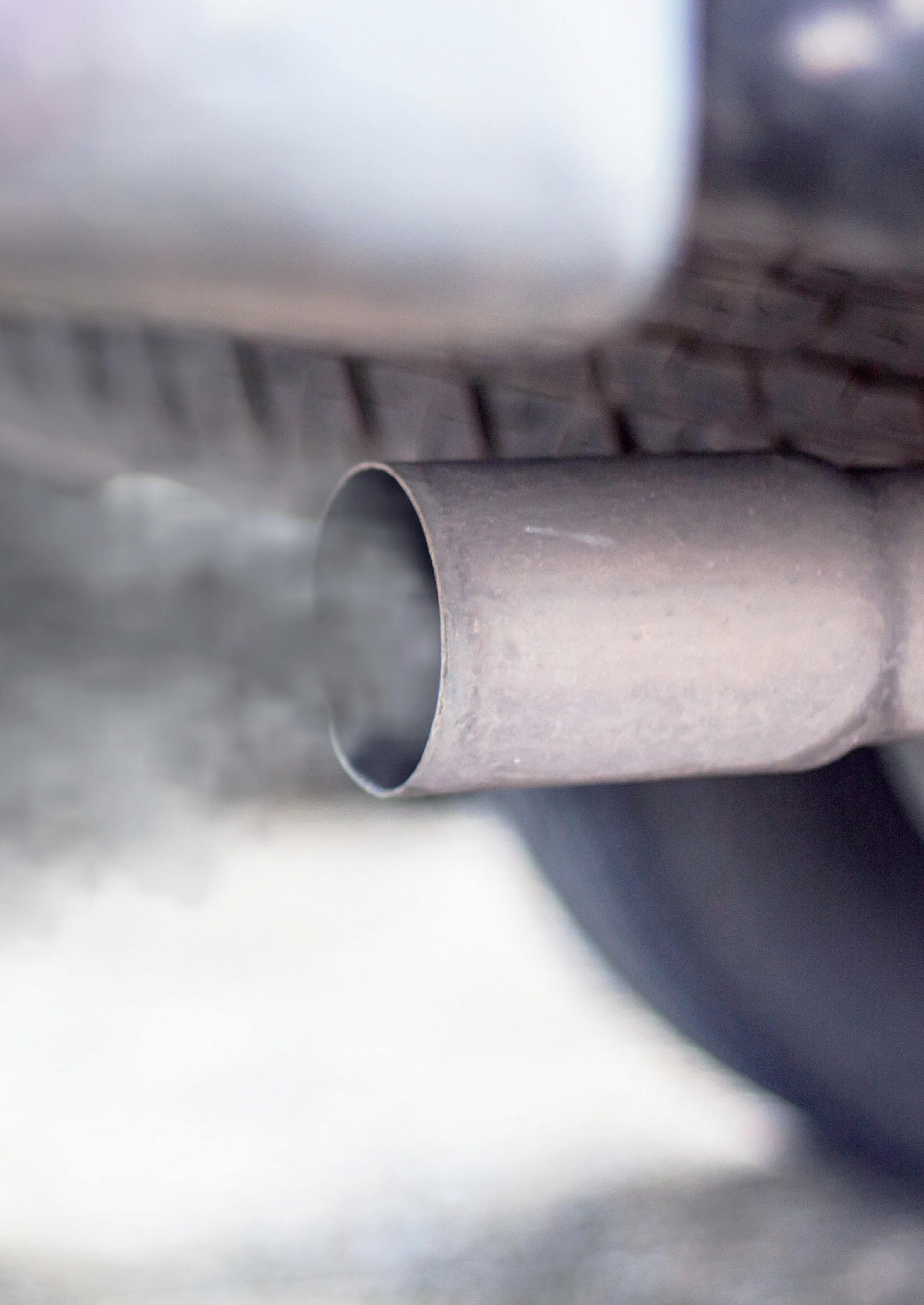
According to the World Health Organisation, noise from road traffic is the second most harmful environmental stressor (air pollution being the first). Not only does this directly lead to a stress reaction in the human body, but studies have shown that exposure to traffic noise is linked to a higher risk of dementia.
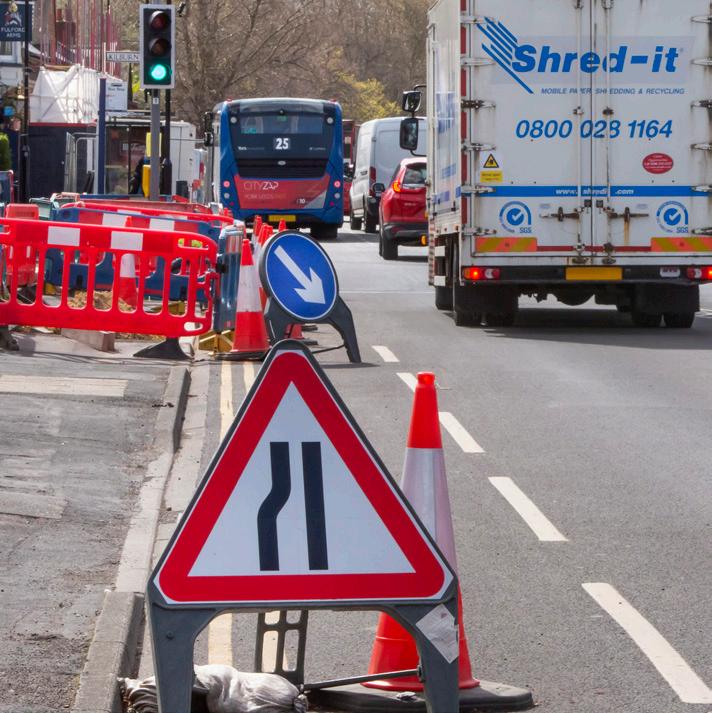
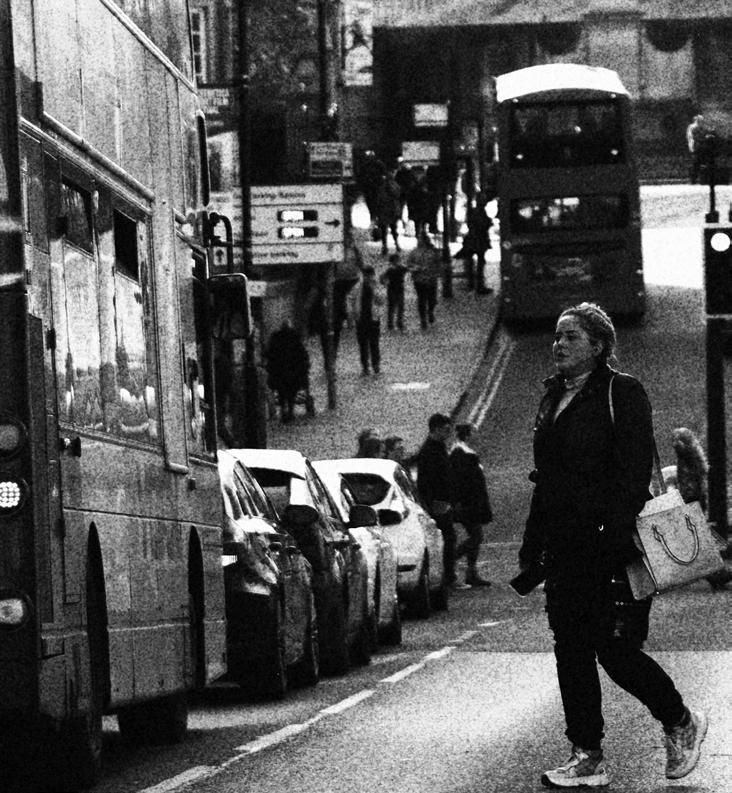
10 Cars encourage aggressive behaviour
Cars offer the illusion of speed and unfettered mobility, and when this inevitably doesn’t happen, it can be immensely frustrating. Combine this with the feeling of separation and loss of connection to others from being stuck in a metal box and the results can be explosive. Instances of drivers effectively using their car as a weapon against cyclists and pedestrians are on the increase, which in extreme cases result in cases of direct physical assault. Sometimes such behaviour is dismissed as “road rage”, which implies that the results are inevitable – something often reflected in unduly light sentences handed out to such offenders.
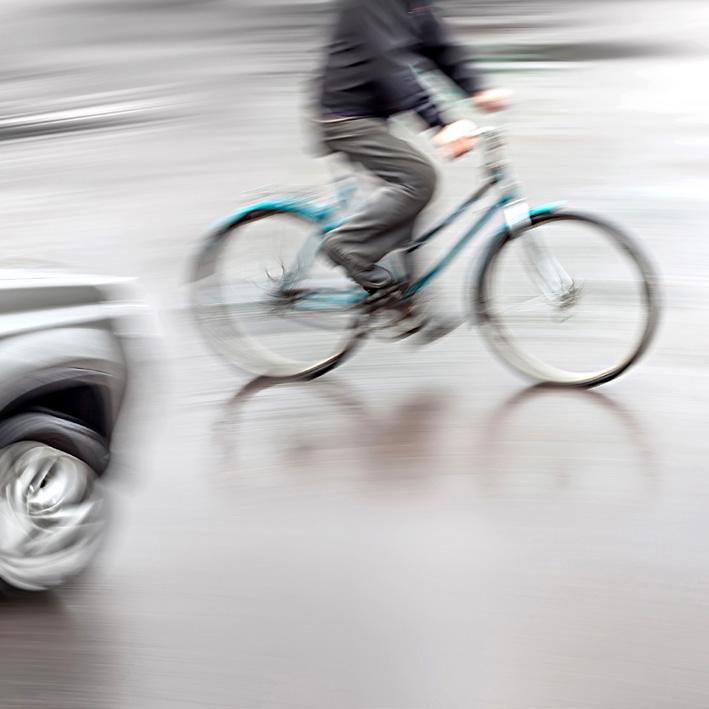
11 Cars undermine community life
Traffic-heavy streets are not nice places to live for all the reasons already listed. But much overlooked is the effect of traffic on communities. Studies have shown that the amount of neighbourly interaction between residents of a street is inversely proportional to the amount of traffic (see no. 36). That stands to reason, as noisy and polluted streets are not exactly places to linger. But these studies go further and show that even the amount of house visits declines with the amount of traffic too. A streetlife of casual interaction between neighbours, acquaintances and friends is the foundation of community life. All of this is killed by car culture.
12 Cars steal land
The average car or van spends 96% of its time parked up. Many of these are on public roads but there’s also 20,000 hectares of UK land given over to public and private car parks. In London for example, just parking on-street on public land accounts for 14km2 – that’s equivalent to 10 Hyde Parks! This is a major problem for many cities, where land is a precious and scarce resource and could be put to more constructive use, such as desperately needed housing, more green space, or economic activity. Parking is literally a waste of space!
